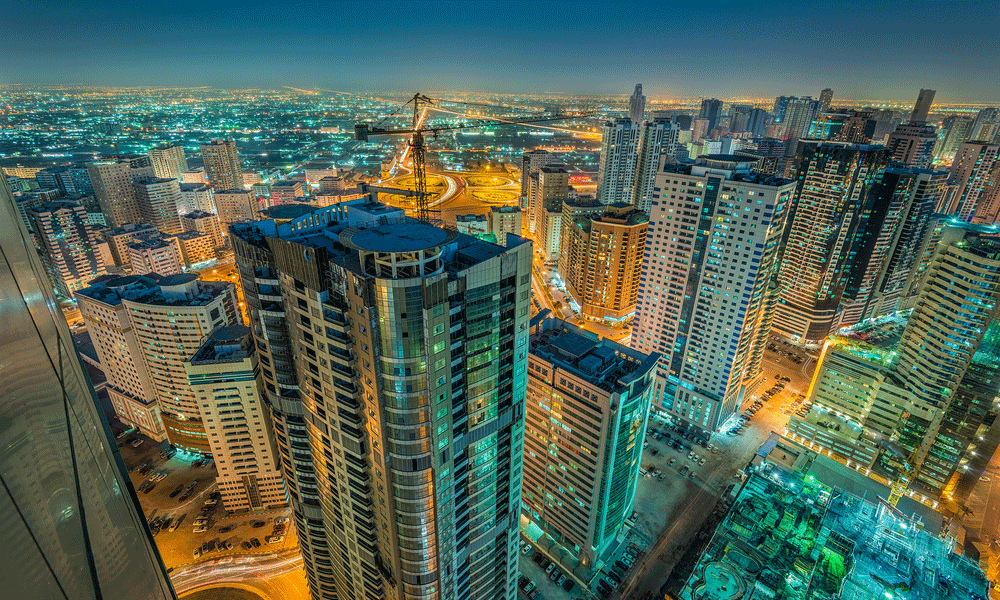The first phase of a $400 million development in Sharjah has gone on sale, with 200 plots of land being offered to Arab investors looking to build their own villas, it has been announced.
Buyers will be able to buy large-sized plots of between 1,700sqm and 3,000sqm, the developer behind the project has said.
The Shoumous Residential Complex, a joint venture between MAG Group and Albatha Real Estate Group, is located in the Al Tal district of Sharjah close to Shaikh Mohammed Bin Zayed Road.
The first phase, spread over 631,740sqm, will feature 200 plots of land, common areas and a mall which will be developed by a third-party developer.
“Sales are open to all Arab nationals — we are offering full flexibility on when the buyer wants to start construction on the plot,” said Dr Hani S. Abu Auida, CEO of Shoumous Properties and Vice-chairman of MAG Group, in a report by Gulf News.
“But all of the access infrastructure, the internal road networks and the provision of utility will be managed by us as the master-developer.
Sharjah’s proximity to Dubai means that its real estate market continues to benefit from residential migration from its neighbour, said Mat Green, head of research and consultancy for the UAE at CBRE Middle East.
“As Dubai has witnessed a flight to affordability, Sharjah has benefitted from a steady increase in occupier demand, which in turn has driven significant rental growth across both villas and apartments during the past year,” he explained.
“The recent launch of Shoumous Residential Complex highlights a continued trend towards integrated community developments in Sharjah and also reflects sustained investment interest in the emirate,” Green pointed out.
“Sharjah has long attracted demand from GCC nationals and this has only intensified in recent times, with some spill-over impact from Dubai as prices there have become inflated. However, with recent changes to the ownership regulations, the investor demographic has been widened further, heightening the appeal of properties at a time when demand is already incredibly high,” he added.
When quizzed as to why the developer could not have built its own properties and sold them to investors, Auida claimed that doing so would have altered the timing of the project significantly, from the current eight to 12 months to three to four years.
“We are giving serious investors [the opportunity] to come in at an investment of, say, $544,491 compared to $2 million or so for a finished property. The buyers have the freedom to plan the kind of funds they want to invest in building their property,” he explained.
“We found there was demand from niche buyers who place a prime value on individuality as well as exclusivity. This is a great opportunity to invest in property in Sharjah.
“We will not be placing any restrictions on investors wishing to sell these plots rather than build. It’s entirely their call on what they want to do once the transaction is done.”
During the past two years there has been a noticeable increase in investment demand, with strong interest in both land and unit sales emerging, said Green.
“This has been reflected in the success of recent sales at Tilal City, the first development to officially offer non-Arabs land purchase rights, although the land title is long-leasehold rather than on a freehold basis.”
Green added that over the next three years, Sharjah will see about 15,000 new residential units. He said that this will help some of the existing supply issues, while also alleviating the pressure on rental rates.
“About half of the projected supply is expected to enter from the four districts of Al Khan, Al Mamzar, Al Taawun and Al Majaz, with the majority of this supply from high rise apartment towers. In the short term, many occupiers in Sharjah will decide to stay put at renewal, as they remain protected by the emirate’s three-year rent cap system, which has proven a godsend for occupiers and major headache for the emirate’s landlords over the past year,” he concluded.

